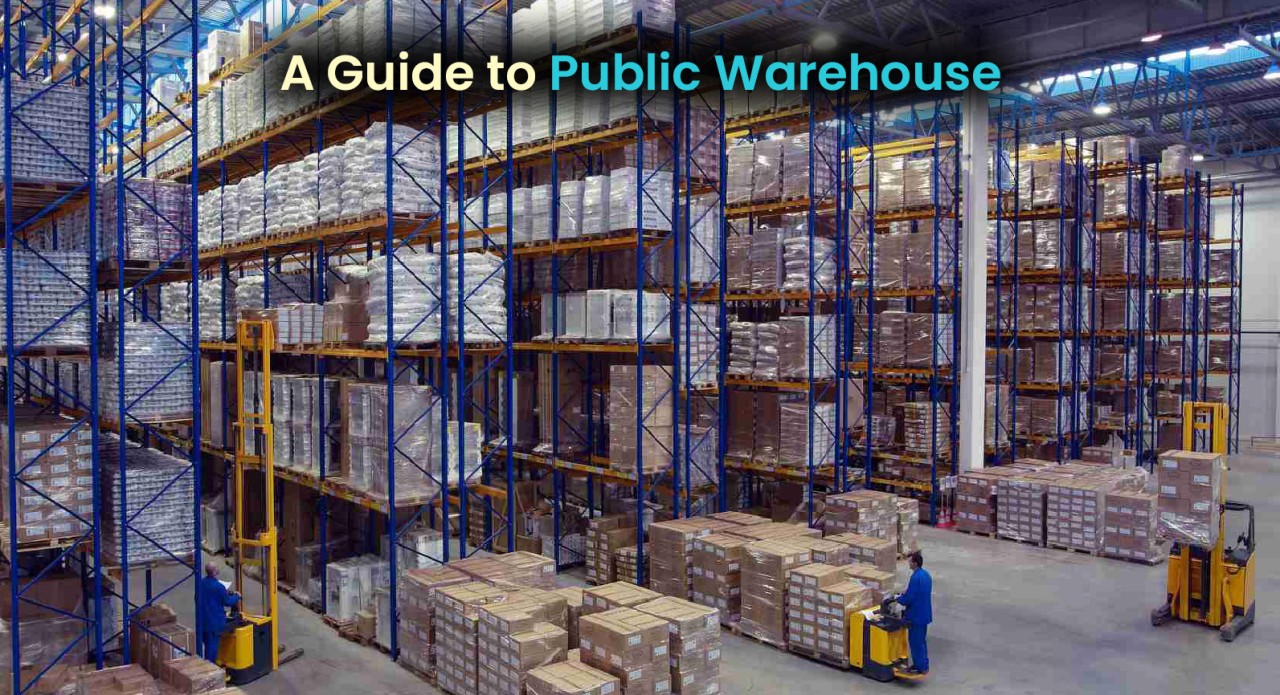
A Guide to Public Warehouse
When we hear the word warehouse, we consider it a building with all the goods scattered here and there, dusty places, and many items stored. But a modern warehouse is clean, with everything being placed accordingly, and the work is done systematically.
A public warehouse is a building used by companies for storing and distributing products that are usually given on rent by third-party businesses. It is a place that is used for storing goods in any quantity. These goods can be used in a short-term or long-term process. The person responsible for managing the warehouse looks after all the interests and products in stock but does not own stored goods. The owners and the rented companies enter a service-legal agreement(SLA).
The modern warehouse provides extra facilities such as automation, digitalization, etc. All these facilities ensure that goods are in proper condition and the entire process is monitored. Public warehouses store different kinds of items, such as:-
1. Food items
2. Hazardous materials
3. Other items in bulk
These warehouses attract many customers willing to purchase grocery items, frozen foods, chemicals needed to make a finished product, etc. public warehouse is helpful for small companies who cannot afford the entire warehouse and only have a few goods to store. The public warehouse provides several extra services such as repacking, re-arranging, putting tags on products to be dispatched, etc. It also provides transportation facilities and the shipment of goods.
Different examples of public warehouses
Warehouse comes in a variety of sizes, ranging from large, medium, to small in size. A giant warehouse provides more facilities to store a wide range of goods. The warehouse is of different sizes. These are:-
1. Refrigerated warehouse:- This warehouse provides a cold or controlled-temperature environment. It allows companies to store and distribute non-renewable goods such as medicines, food, etc.
2. Specialized warehouse:- These warehouses are used to store specially designed goods that can be hazardous, such as chemicals used in pharmacies.
3. On-demand warehouse:- This is the most common warehouse present these days. It connects businesses needing space to store materials with warehouses with excess space temporarily.
4. Pick-pack and ship warehouse:- When an order is received, find where the product is located within the warehouse either manually or through automation, pack the order, and then ship it to the customers.
Some other warehouses are bonded warehouses, cross-docking warehouses, smart warehouses, and many more.
Benefits of Warehouses
The public warehouse provides a wide range of facilities for companies. These are:-
1. Cost-effective process:- Using a public warehouse saves time and is cost-friendly. It helps small business owners reduce infrastructure, preserve profit, and improve efficiency. As the building is given on rent, one only needs to pay a little as only a sum of the amount is paid to the owner.
2. Security of products:- The goods are kept secure and safe as there is less possibility of misplaced goods. An automated service keeps track of goods and checks if goods are in the right place.
3. Flexibility:- Goods can be kept in a warehouse for days, months, or years. It will help to increase productivity and strategize effective logistics plans. It also enables the owners of the goods to stay tension-free as they are sure that a sufficient amount of interest is available in stock.
Advantages of warehouse
1. It is helpful for small people in business who need help to afford a private warehouse or purchase a building specifically for warehouse management. The public warehouse is helpful as they cannot go for large-scale investment.
2. The fee to be paid to the owner is based on the space occupied. This saves money as companies need to pay a limited amount and can keep the profit margin themselves. Also, they can purchase a specific plot as much as they need and do not need to buy extra.
3. If the warehouse companies set the warehouse at a critical location with a need for a warehouse, they can earn considerable money.
Disadvantages of warehouse
1. As the companies will not have complete control over the warehouse as it will be owned by someone else, the autonomy over the warehouse will be reduced.
2. Multiple businesses hold different kinds of goods stored in a typical warehouse, so if some hazardous substances get mixed with other products, it might be harmful.
3. Some warehouses might only have specialized services such as automation and digitalization. So, it might be a disadvantage to some companies.
Conclusion
A public warehouse still tries to satisfy customer’s demands by providing customization such as on-demand storage, particular storage structure, etc. They are trying to take the help of modern technology, which will provide automation and monitoring services. Through this, the owners will earn a handsome amount of money, and the companies who have purchased a specific amount of place in the warehouse will remain tension-free as their goods are safely handed.
Follow us for insights www.meraqui.com
Author: –
Anis Kazi
Chief Business Officer (CBO) – Logistics & Ecommerce Business
MERAQUI Ventures Pvt Ltd
hashtag#warehousing hashtag#Productivity hashtag#Logistics hashtag#MERAQUI hashtag#Staffingsolutions hashtag#3pllogistics hashtag#Manpower hashtag#Licensing hashtag#Payrollmanagement hashtag#warehousingoperations hashtag#GIG hashtag#Workforce hashtag#ai hashtag#tech hashtag#supplychain hashtag#scm hashtag#supplychain hashtag#supplychainmanagement hashtag#resources hashtag#production hashtag#manufacturing hashtag#customerexperience hashtag#Meraqui hashtag#globalcircular hashtag#technologytrends hashtag#machinelearning



Leave a Reply